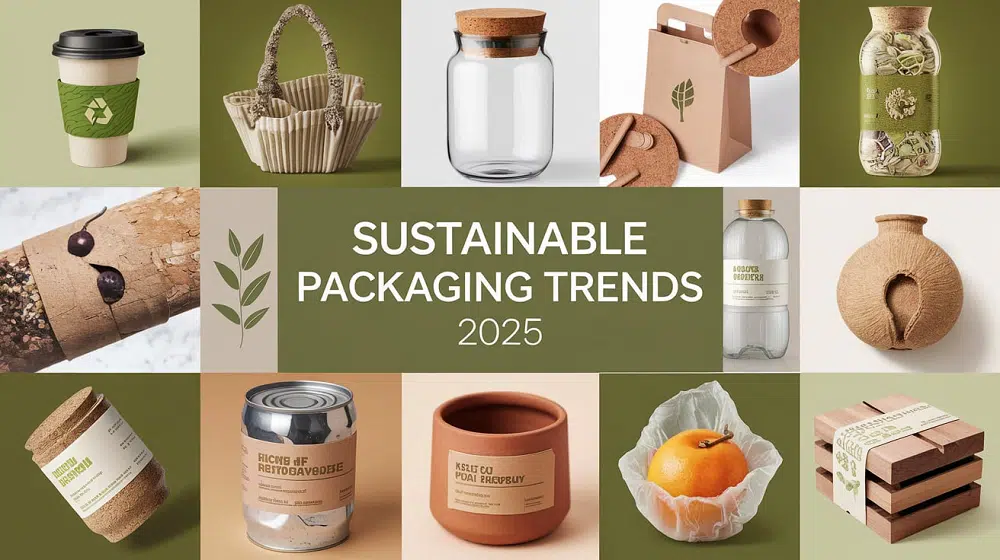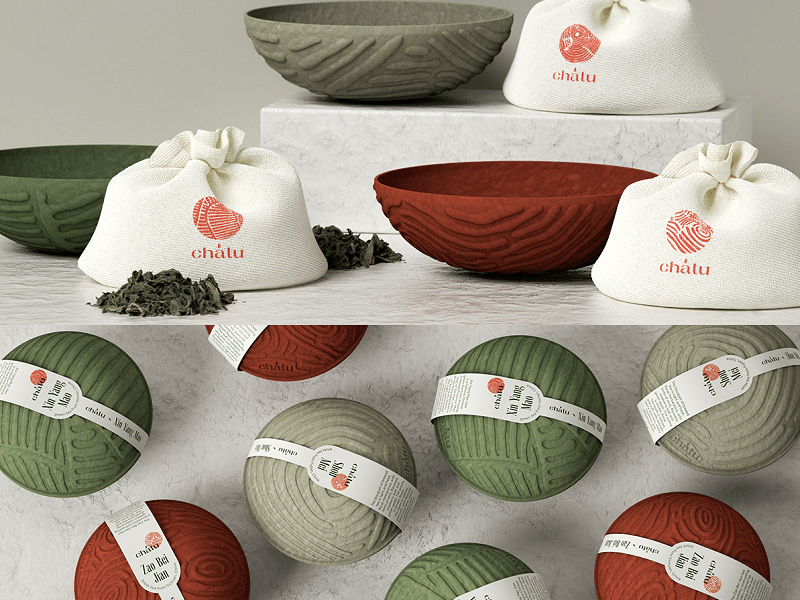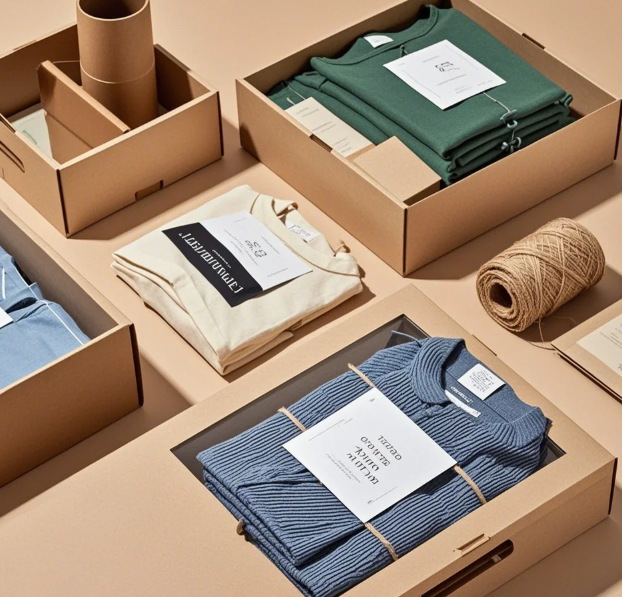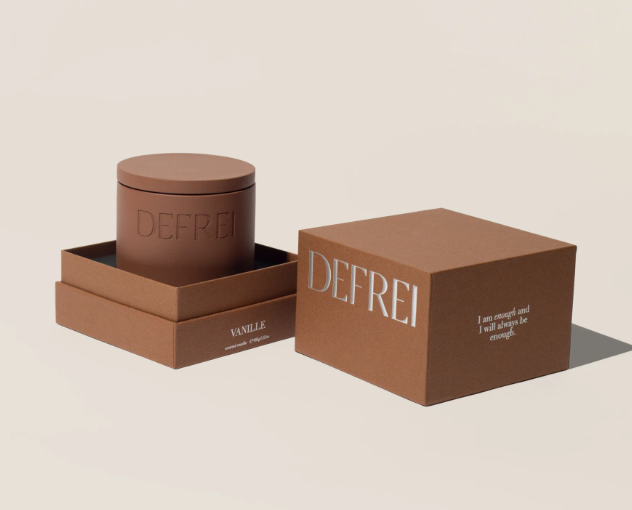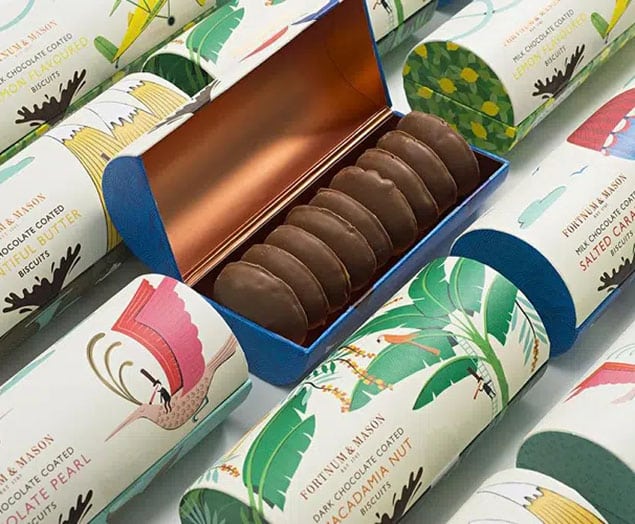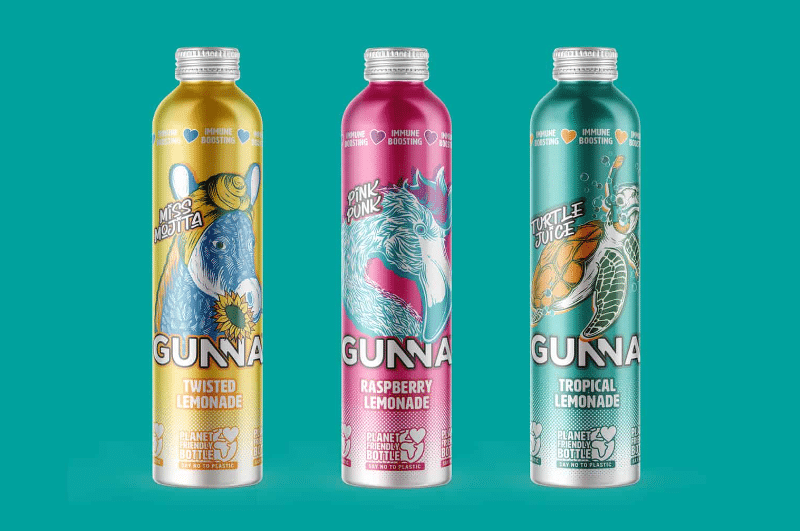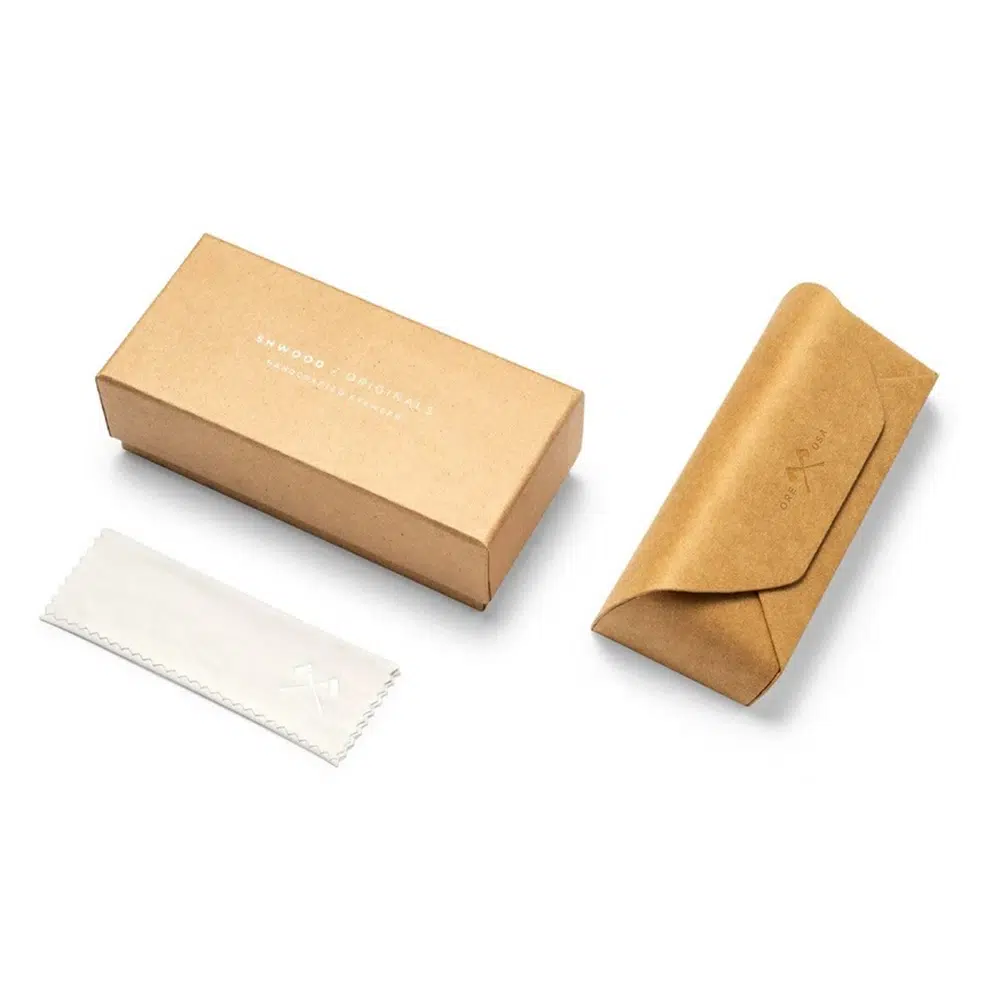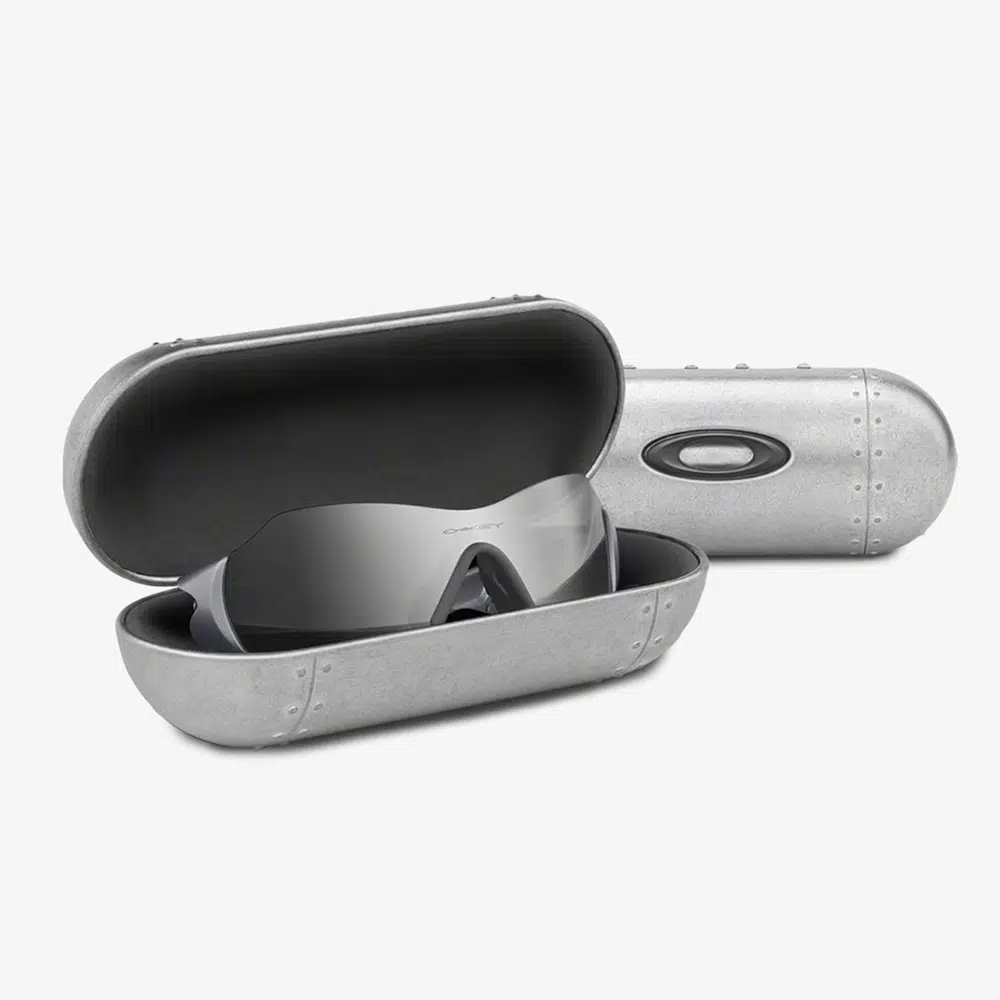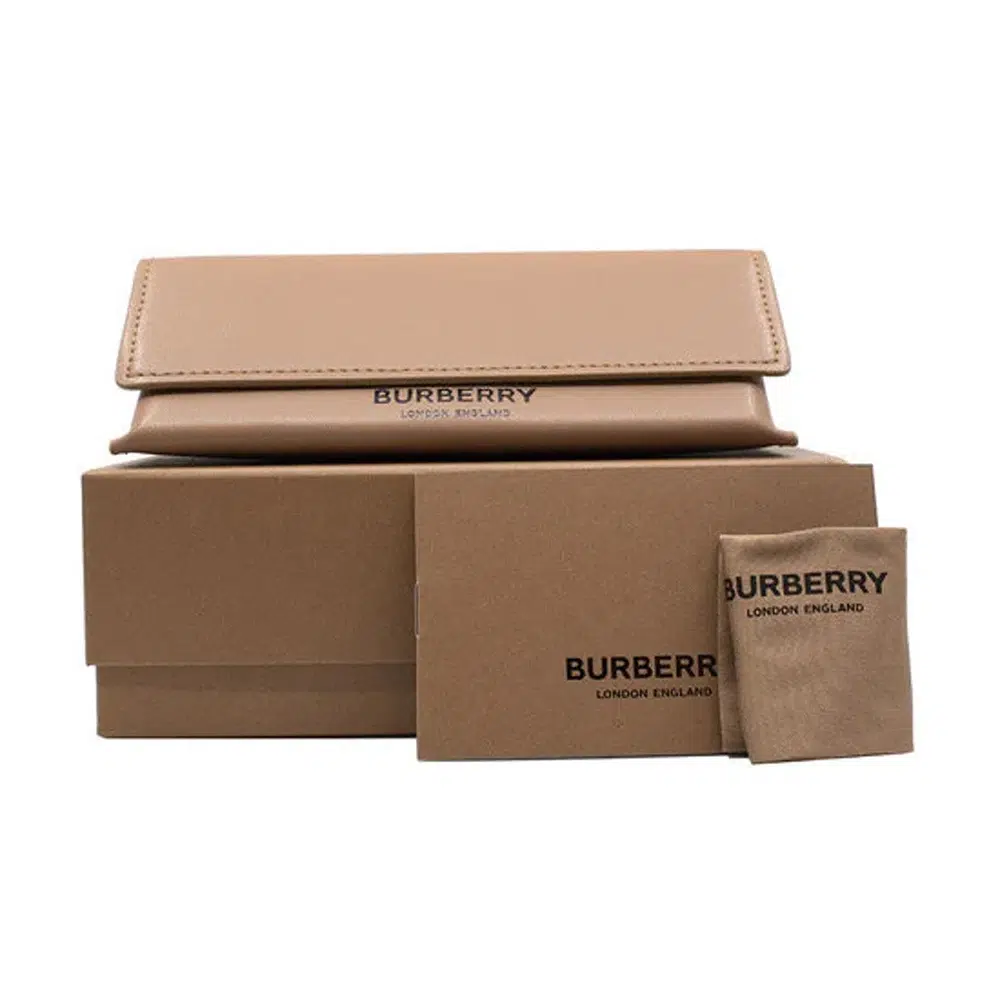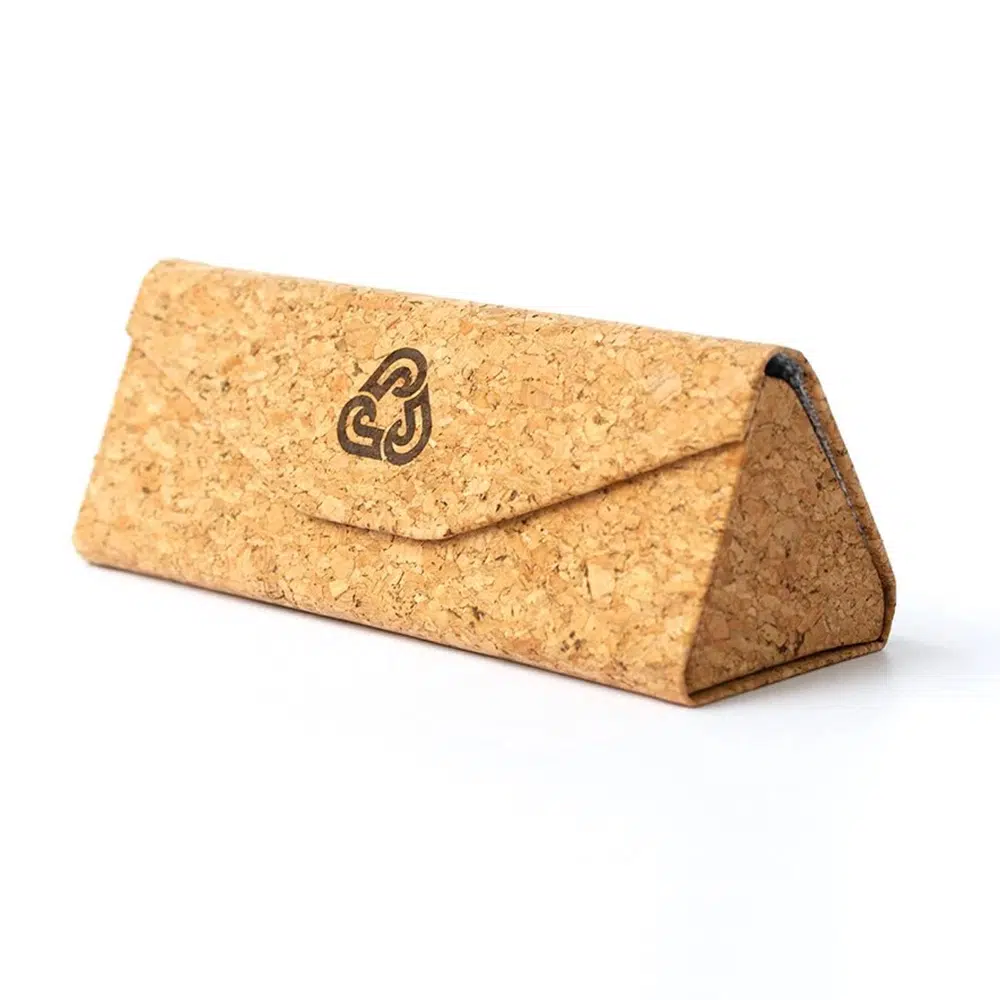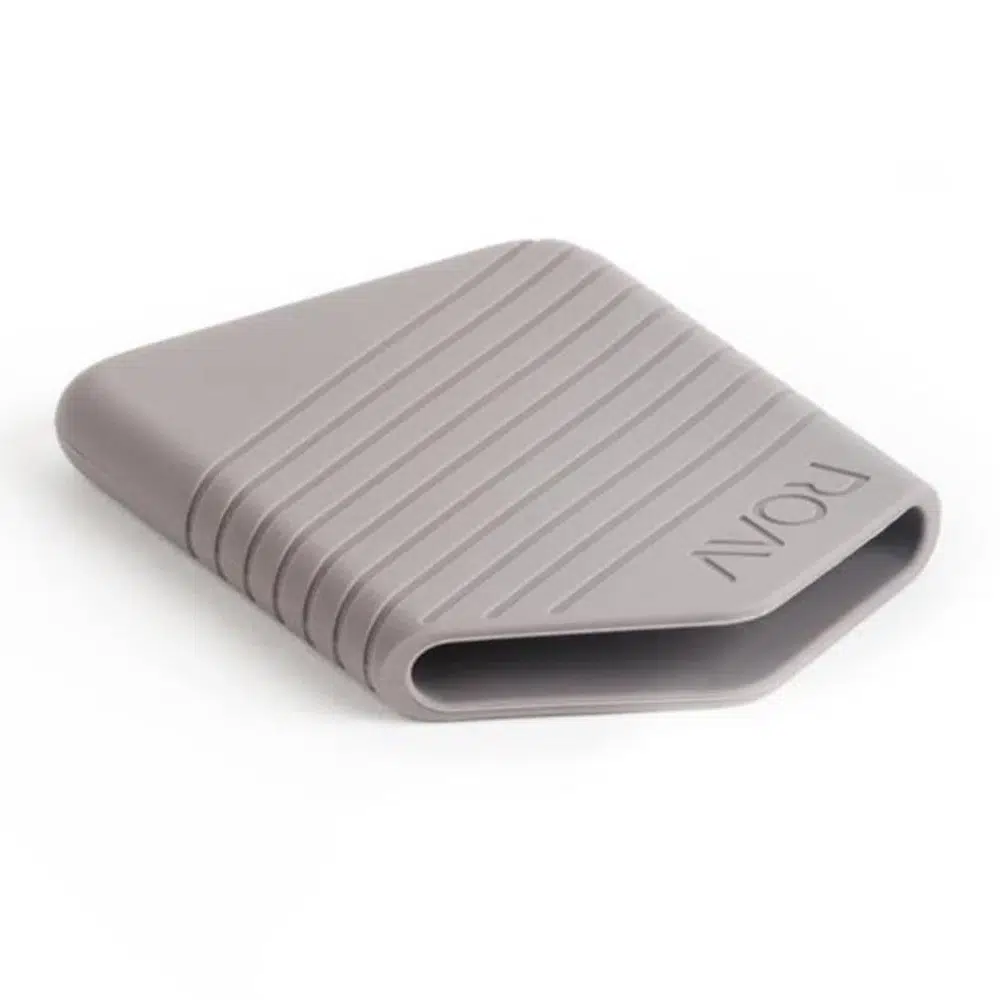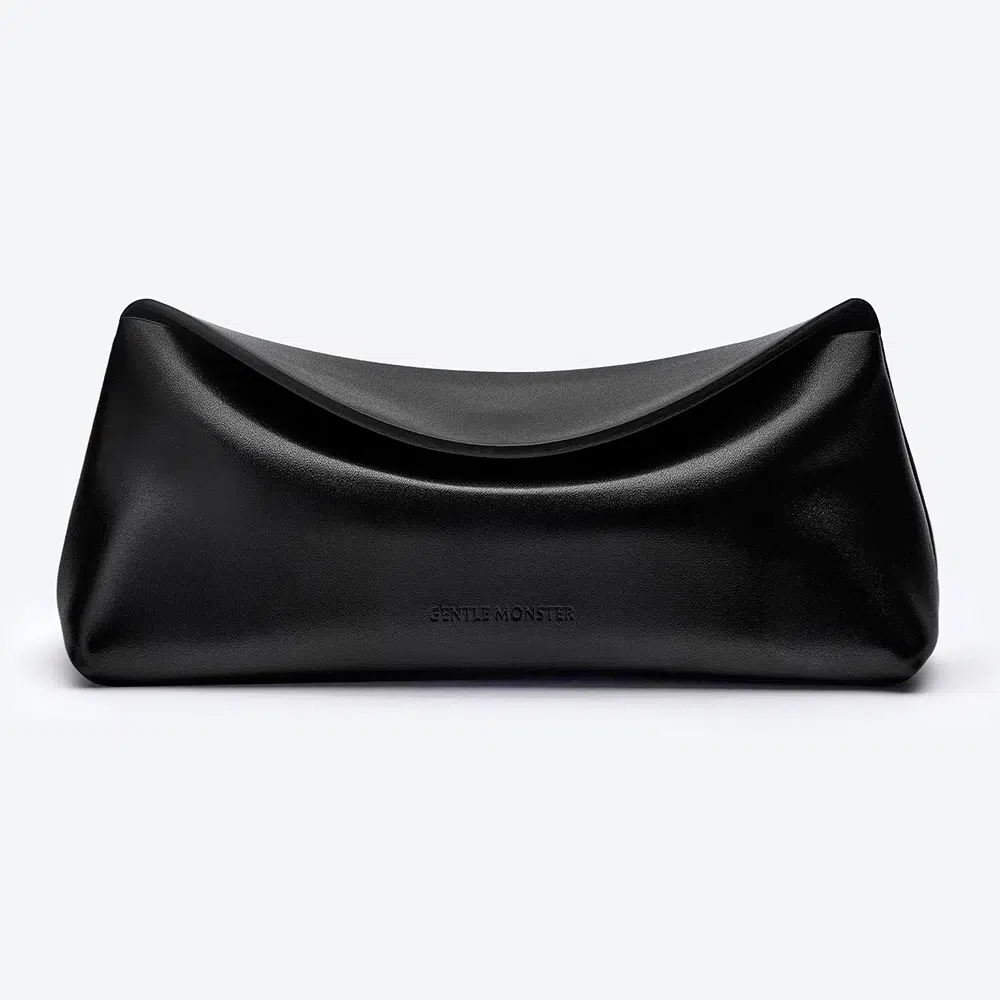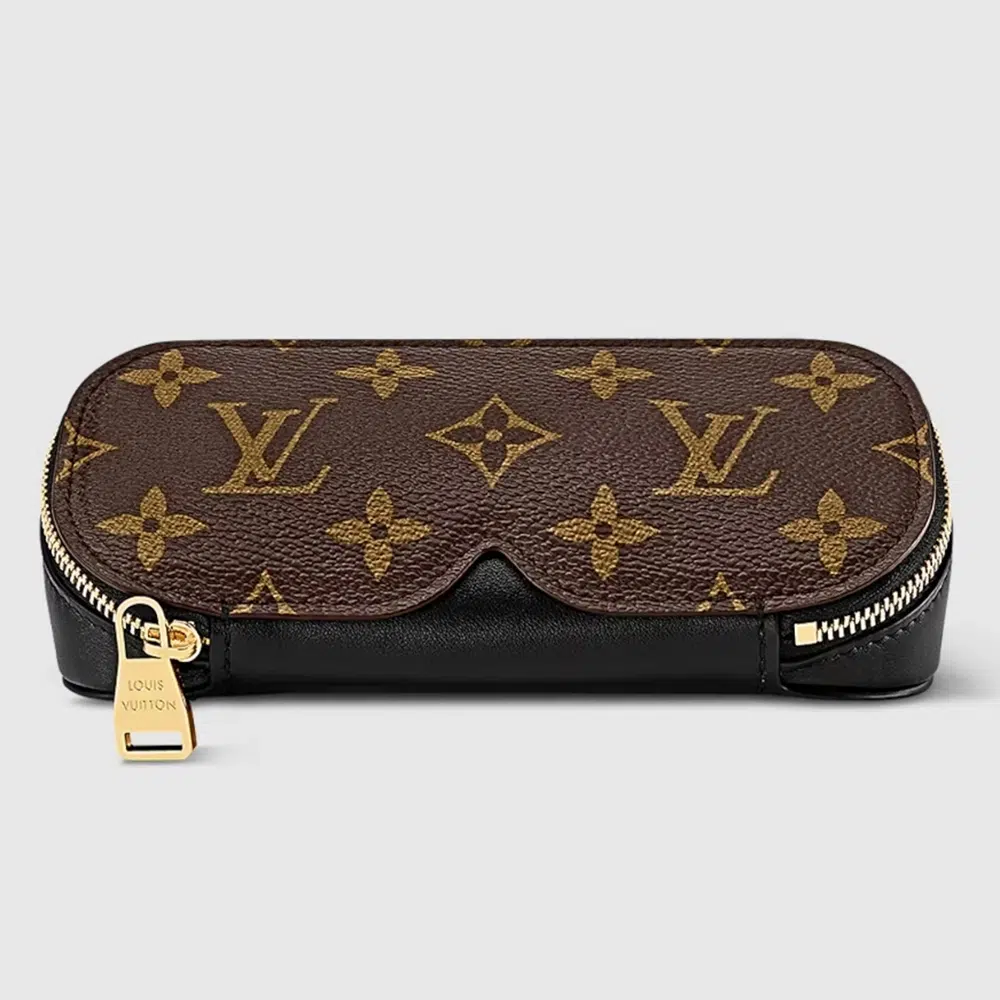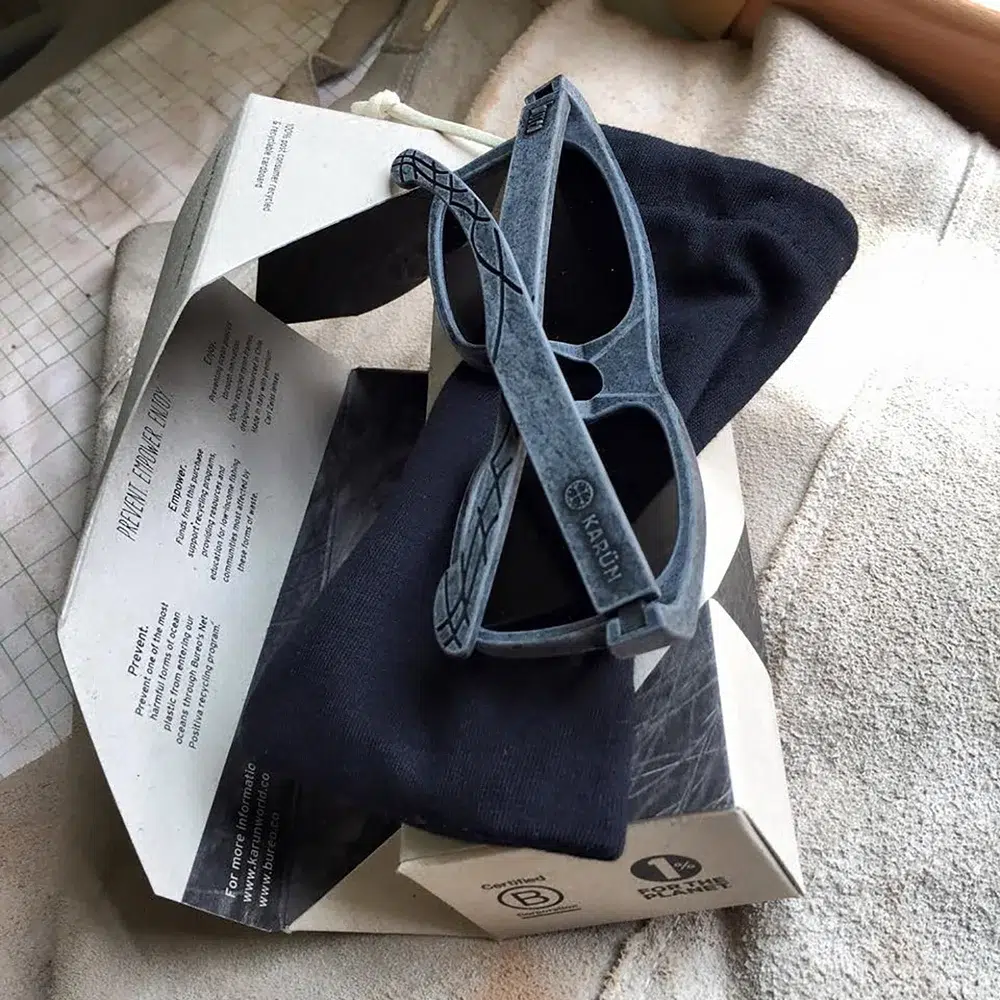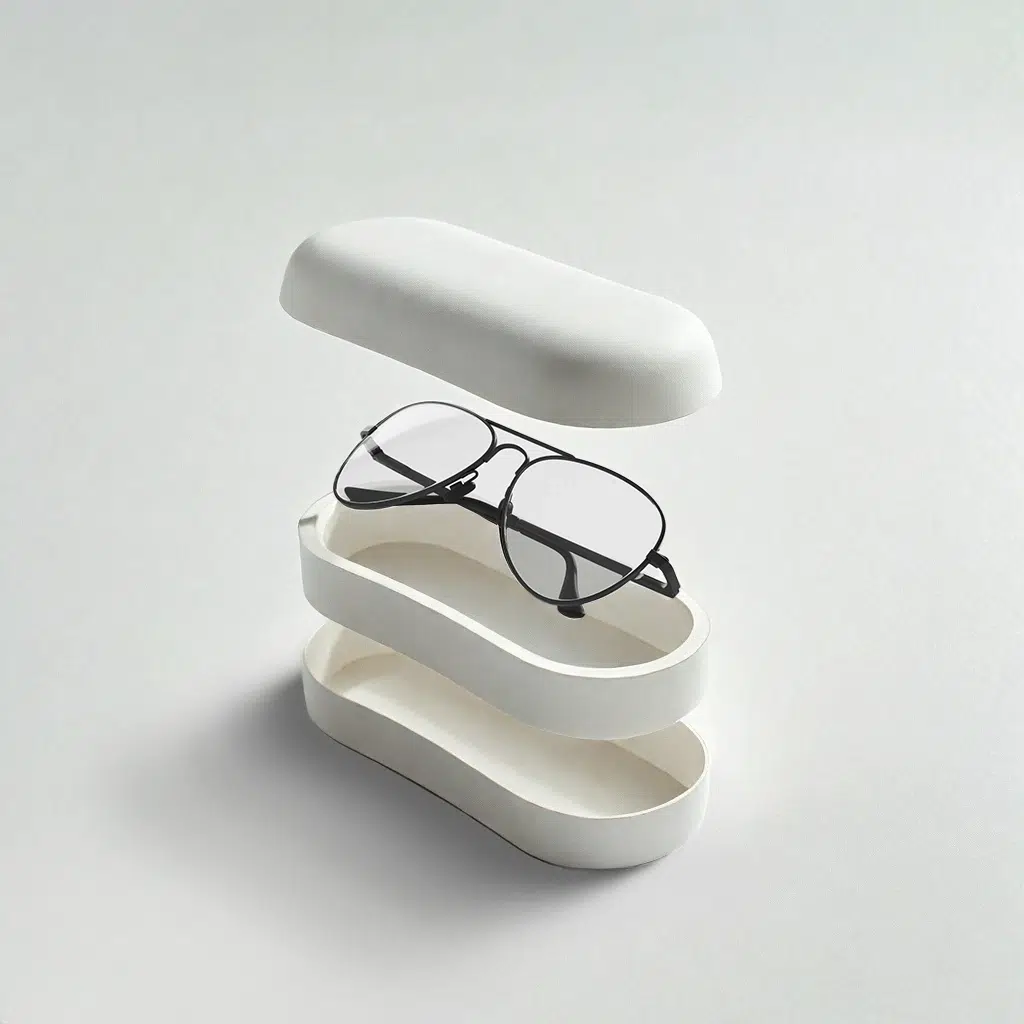In today’s competitive eyewear market, a well-designed eyeglass case serves dual purposes: protecting glasses from external damage while simultaneously enhancing user experience and increasing brand value. In fact, it can emerge as a decisive factor in consumer choice. Currently, eyeglass case design is moving toward diversification, personalization, and the integration of environmental protection with technology, so let’s explore these infinitely creative glass display case packaging designs.
I. Material Innovation and Case Studies
Environmentally Sustainable Materials
With growing environmental awareness, sustainable materials are becoming increasingly common in glasses case design. Warby Parker’s molded paper pulp eyeglass case is exemplary, being 100% recyclable while offering excellent buffering performance to protect glasses from external damage. Similarly focused on environmental protection, Proof Eyewear uses recycled cardboard to create minimalist folding cases, reducing raw material use while ensuring product protection through clever structural design.
Special Texture Materials Exploration
Beyond environmental materials, many brands are exploring various special texture materials to bring consumers different tactile experiences:
Wood: Shwood brand’s solid wood slice eyeglass case incorporates natural wood grain into the design, making each case a unique piece of art due to the distinctive texture of the wood. This design reflects the brand’s respect for natural materials while perfectly complementing their wooden frame products.
Shwood’s Wood Eyeglass Case
Metal: Oakley’s aluminum eyeglass case perfectly combines lightweight and durability. The cold touch of the metal material complements the modern design language, providing superior protection and serving as a fashionable accessory.
Oakley’s Aluminum Eyeglass Case
Textured Paper: Burberry’s textured paper eyeglass case offers an environmentally friendly alternative to genuine leather while maintaining a high-end feel. This material simulates the texture of leather yet is more environmentally friendly and economical, reducing dependence on animal leather while preserving the luxurious touch and visual effect required by premium brands.
Burberry’s Textured Paper Eyeglass Case
Cork: Waterhaul’s cork eyeglass case utilizes the lightweight and natural shock-absorbing properties of cork to provide ideal protection for glasses. As a renewable resource, cork’s environmental characteristics align perfectly with the brand’s natural philosophy.
Waterhaul’s Cork Eyeglass Case
Biodegradable Material Solutions for Eyeglass Cases
Facing increasingly serious environmental issues, fully biodegradable materials have become a new direction for eyeglass case design. Stella McCartney’s bio-based plastic sunglasses case uses extracts from corn, sugarcane, and other plants, maintaining the functionality of traditional plastic while significantly reducing environmental burden. Sea2See takes a different approach by transforming recycled ocean plastic into eyeglass case materials, with each product reducing ocean plastic pollution and conveying an environmental protection philosophy.
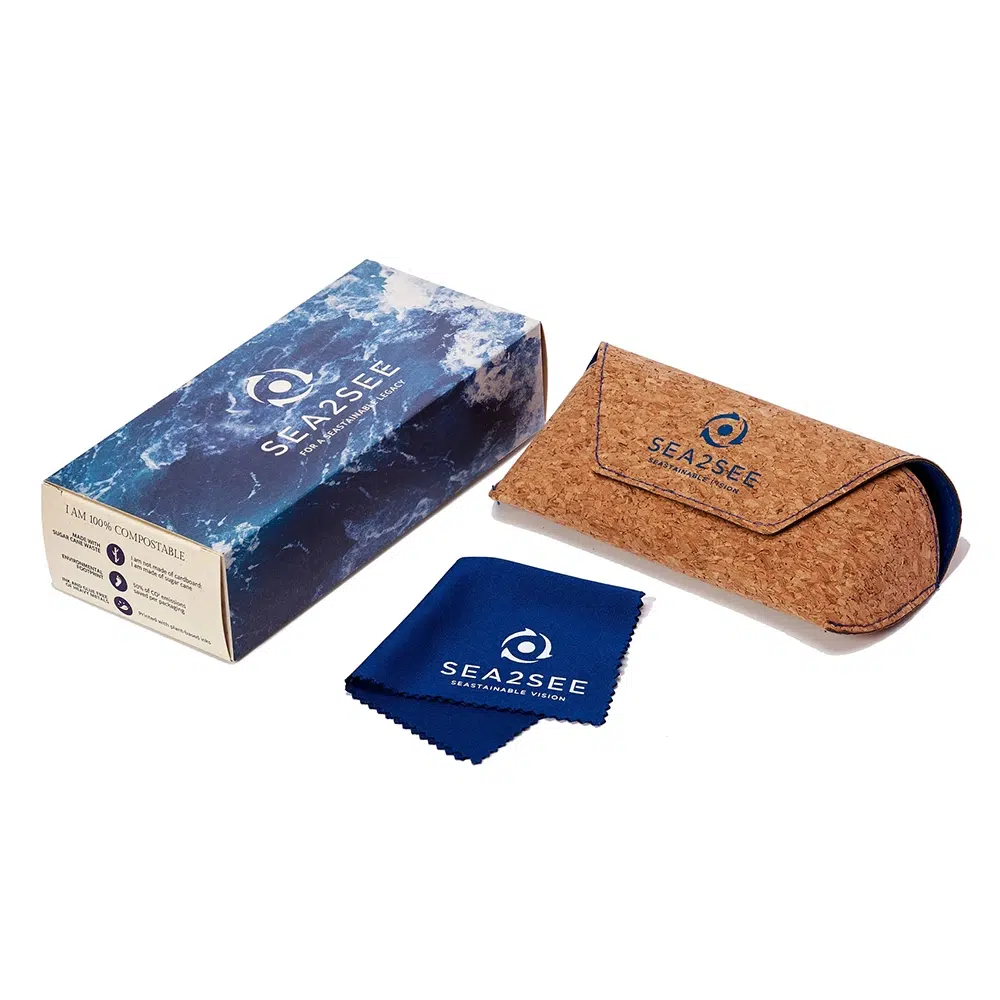
II. Structural Design Highlights and Examples
Foldable Portable Eyeglass Cases
Modern people pursue convenience and efficiency, and foldable eyeglass cases reflect this need. ROAV’s ultra-thin folding eyeglass case innovatively reduces case thickness to a minimum, allowing it to fit into a wallet, providing a convenient solution for users who frequently carry multiple pairs of glasses. Persol’s folding transformable eyeglass case achieves 50% space savings through an ingenious mechanical structure, greatly improving portability while maintaining protective functionality.
Multifunctional Combination Designs
Eyeglass cases are no longer single-function containers; multifunctional combination designs have become a new trend. Oakley’s modular eyeglass case allows users to expand storage space according to needs, easily accommodating multiple pairs of glasses or various accessories. ic! berlin integrates a solar-powered cleaner into the eyeglass case, enabling users to clean and disinfect their glasses simply by opening the case, which demonstrates the humanization and innovation of product design.
Innovative Opening Mechanisms
Traditional hinge opening mechanisms are being replaced by more innovative designs. Gentle Monster’s magnetic hingeless eyeglass case achieves a smooth and silent opening experience through a precise magnetic system, while avoiding the wear issues of traditional hinges. DITA applies hydraulic descent technology to eyeglass cases, making the lid opening process elegant and composed, similar to the door descent system of a high-end sedan, which greatly enhances the premium feel of the product.
Pressure-Resistant and Shock-Resistant Structural Designs
As a core function of eyeglass cases, protective performance has always been a focus for designers. Maui Jim’s EVA buffer structure eyeglass case uses material similar to that in sports shoe midsoles, providing excellent cushioning and shock absorption performance. Smith Optics innovatively introduces an airbag protection design, offering all-around protection through an internal airbag system when glasses are subjected to external impact, effectively preventing lens scratches and frame deformation.
III. Interactive Experience Innovation and Case Studies
Smart Eyeglass Case Designs
With the popularization of smart technology, eyeglass cases are also becoming “smarter.” Ray-Ban’s smart reminder eyeglass case is equipped with location tracking and reminder functions; when users leave the case at a certain distance, their phone receives a reminder, effectively preventing glasses from being forgotten or lost. Luxottica’s UV disinfection eyeglass case integrates a ultraviolet sterilization device, disinfecting glasses deeply during each storage, which is particularly suitable for today’s health-conscious social environment.
AR Augmented Reality Packaging Experience
Augmented reality technology brings new interactive possibilities to eyeglass cases. Gucci’s AR interactive eyeglass case enables virtual try-on functionality by scanning special markers on the case with a phone, allowing consumers to preview wearing effects without taking out the glasses. Snapchat Spectacles’ interactive packaging design integrates AR games into the unboxing experience; users can unlock unique virtual filters and interactive content by scanning the packaging with their phones, significantly enhancing the product’s fun factor.
Playful Opening Methods
Opening the eyeglass case itself can become a pleasure. Mykita’s puzzle-like opening design requires users to press hidden buttons on the case body in a specific order to open the eyeglass case, adding mystery and fun to the product. Moscot’s drawer-style multi-layer eyeglass case is like an exquisite jewelry box, opening layer by layer, gradually revealing the product, turning the unboxing process into a ceremonial experience.
Personalized Customization Services
Personalization has become an important trend in modern consumption. Oliver Peoples’ engraving customization service for eyeglass cases allows consumers to engrave names, dates, or words with special meanings on the eyeglass case, making the product more personal. Cutler and Gross collaborates with artists to launch limited edition eyeglass cases, each a unique piece of art, satisfying consumers’ pursuit of uniqueness.
IV. Brand Case Studies
Luxury Brand Eyeglass Case Design Features
Luxury brand eyeglass cases typically emphasize material texture and brand recognition. Cartier’s red velvet gift box-style eyeglass case uses their signature red and gold logo, with a finely crafted velvet interior, presenting the glasses like jewelry. Louis Vuitton applies its classic Monogram canvas pattern to eyeglass cases, strengthening brand recognition while ensuring product durability, fully embodying the luxury characteristic of combining aesthetics with practicality.
Independent Designer Brand Creative Packaging
Independent designer brands are often bolder and more innovative in design. Ahlem’s handmade brass frame eyeglass case is designed as a displayable art piece, with the brass material forming unique oxidation patterns over time, making each case evolve with time. Kuboraum breaks convention with cement-textured eyeglass cases, creating a unique brand language where rugged industrial aesthetics complement their avant-garde frame designs.
Environmental Packaging Solutions from Eco-Conscious Brands
Environmental protection has become a core value for many brands. Parafina innovatively uses recycled denim to make eyeglass cases, reducing textile waste while creating a unique visual and tactile experience. Dick Moby chooses algae-based plastic as the eyeglass case material, which doesn’t emit carbon during production and actually absorbs carbon dioxide, achieving true zero-carbon emissions and demonstrating the brand’s ultimate pursuit of environmental protection.
V. Future Trends Outlook
Integration of Technology and Eyeglass Case Design
Technology will continue to be deeply integrated into eyeglass case design. Huawei and Gentle Monster’s collaboration on charging eyeglass cases perfectly combines smart glasses’ charging needs with the case body, allowing glasses to charge when stored, which greatly enhances user experience. Apple and Zeiss are developing MR glasses smart storage solutions that provide physical protection while being capable of synchronizing eyeglass software updates and performing data backups, reflecting the future development direction of glasses as smart devices.
More Eco-friendly Materials and Processes
Exploration of environmentally friendly materials will go further. Karün pioneered the use of recycled materials from abandoned fishing nets in the ocean to make eyeglass cases, cleaning the marine environment while providing a reuse pathway for fishing net waste. Gvpak offers compostable eyeglass cases that achieve complete biodegradation, decomposing into environmentally harmless substances within a short period, representing the ultimate environmental goal for packaging materials.
Karün Fishing Nets Eyeglass Cases
| Glasses Case Materials |
Biodegradability |
Environmental Impact |
Durability |
| Molded Paper Pulp |
High – Fully biodegradable |
Low – Made from recycled paper |
Medium – Provides good protection but less water-resistant |
| Recycled PET |
Low – Not biodegradable but recyclable |
Medium – Reduces plastic waste |
High – Durable and water-resistant |
| Cork |
High – Natural biodegradable material |
Low – Renewable resource, sustainable harvesting |
Medium – Good shock absorption, limited water resistance |
| Textured Paper |
High – Biodegradable |
Low – Uses plant-based materials |
Medium – Requires coating for durability |
| PLA (Corn-based plastic) |
Medium – Biodegradable under industrial conditions |
Medium – Plant-based but requires agricultural resources |
Medium – Less heat resistant than traditional plastics |
| Ocean Recycled Plastic |
Low – Not biodegradable but recyclable |
Low – Removes existing pollution |
High – Similar to virgin plastic |
VI. Conclusion
In the future, eyeglass case design will continue to seek balance among functionality, aesthetics, environmental protection, and technology, providing more surprises for consumers. A well-designed eyeglass case is no longer just a supporting role but an important medium that can tell brand stories and convey brand values. With the continuous development of design concepts and technology, we have reason to expect more breathtaking innovations in the field of eyeglass case design.
Custom Your Glasses Case With Gvpak Today!




